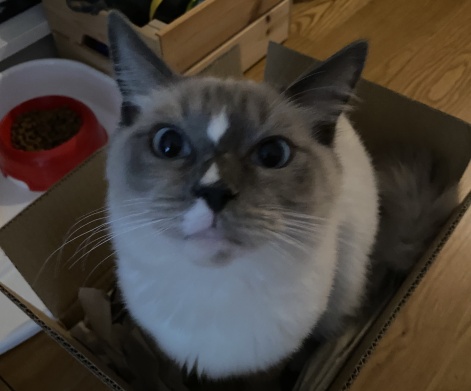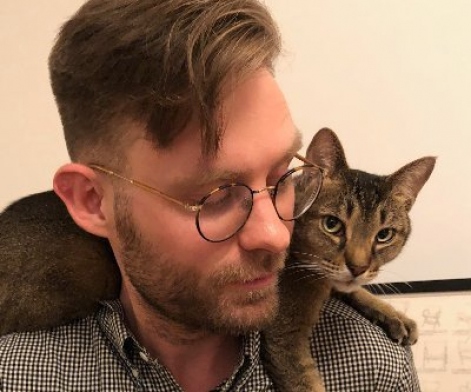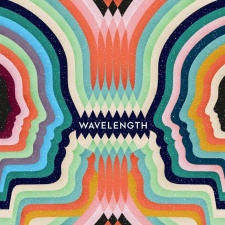I’ll be honest; midway through the interview, a cat* jumped up on the table, knocked over the dictaphone, and started drinking water for a saucepan that was soaking. One of the perils of pandemic-fuelled WFH. But there are tougher obstacles; unlike Alex Hague, game designer at CMYK, PocketGamer.biz didn’t launch Wavelength, a physical board game, weeks before the start of the COVID-19 pandemic.
"You can imagine that buzz and excitement, and suddenly we can’t see our friends and families or go to game nights. Despite that, it’s done really well but, as a game designer mostly working on social party games, it was tough.
"So I started looking at the best and most popular social games on mobile and Steam in March 2020 and saw that they’re still the same ones from around five years ago. They’re great games but it was really surprising that the space hadn’t evolved much.

"I got really excited about making a mobile-first, remote-friendly party game. Exploring digital was a pivot I’ve been meaning to make, but I also started this out of selfishness – I want a game like Wavelength digitally, something that gives you something to do with your friends for an hour that isn’t talking about the state of the world. Why not whether hotdogs are sandwiches, or if Darth Vader’s a wizard, or how hot coffee is, and the other conversations our game creates?"
Success<>Not a success
Wavelength is Hague’s first experience both releasing a mobile game and translating a physical experience into a digital one. The mobile game environment is one infused and informed by data and analysis, but when asked about projections to determine KPI and IAP conversation rates, Hague revealed a more gung-ho approach.
"We didn’t [make any], really. In all honesty, the further along we got with development, the easier it would have been if this was a PC-only game! There are probably macro reasons that I personally don’t understand, but releasing Wavelength on mobile might not have been the smartest choice in the world, economics-wise.
"But we never considered anything other than having this on mobile. From a larger, philosophical point of view, it would be such a wasted opportunity to not have the game on a device that everybody owns – it’s an amazing, democratic platform for games, which is why it’s surprising that social party games haven’t flourished."
IAPs<>no IAPs
Mobile games have numerous monetisation options, but Hague was adamant about ensuring no in-game advertising, fearing a disruption to the pacing of the game.
Why not whether hotdogs are sandwiches, or if Darth Vader’s a wizard, or how hot coffee is
"They’re just so exhausting to me. And, looking away from the business model, we were very focused on creating the best possible party game experience. Can you imagine four people sitting down to play this, and two of them have to wait 30 seconds to watch an ad for Clash of Titans or something? It would be the biggest buzzkill."
That leaves many options: would Wavelength be sustained by IAPs (further moving away from the physical game that currently has no expansion or additional card packs) or a paid app that includes all immediate content?
"I had a – quite possibly naïve – assumption at the beginning that it would be precisely that: a single payment to access all of the cards. We’re not far from that, but it’s also important for us to allow people to play the game without having to pay for anything. That’s critical for the Wavelength app, because everyone has to download the game. Maybe you persuade five of your friends to pay the 99¢, if one person’s annoyed and doesn't want to pay, or someone’s credit card isn’t working, the experience is ruined. This really solidified the decision for us.
"There’s another benefit - we get to easily work with other people; we have a new card pack written by Shut Up and Sit Down, live with the release of the app. That’s the perfect thing for a 99¢ IAP; it doesn’t include all of the challenges of making a physical pack, and I’m hoping to have more collaborators in the future. So I get to play other people’s funny cards, instead of my own all of the time."
Hague has a small but key advantage over mobile-only creators; he is mostly defined as a tabletop designer, and the potential success of the Wavelength app may feed back into his core environment.
"We’re also coming at this from a different perspective – I want to impart our values as creators of physical games too, so there’s another line of showing support: if you like the app, why not buy the physical copy of the game? That’s also our hope with the Wavelength app, a hybrid experience that pairs with the tabletop, rather than a purely digital one."
Touch<>Do not touch
The interplay between board and video games is well established – the Embracer Group acquired Asmodee for $3.1 billion in December 2021 – but purists have long argued that video games are unable to replicate the physicality and tangibility of board games. A perfect challenge for Hague.
"This was my favourite challenge of working on the app. The Wavelength app has been designed for people to play away from each other. The physical game has this big, chunky dial as the centrepiece to the fun conversations, and there was a lot of discussion about creating the right kind of haptics and feedback to create a similar tactility. So we included what are essentially player avatars that can interact as the dial is being changed – a visual shorthand for how people would interact with the dial in-person, rather than just saying verbally 'turn the dial left a bit'.
"We also included social media-style emojis to create a form of mobile party games space. This isn’t something I’ve seen in any other mobile party game, but we did reverse-import these from apps like Instagram and Snapchat.

"You’re never going to truly replicate the joy of being in the same space. But we’ve learnt that having these visual touch points - such as, oh, my friend’s spamming the poop emoji – is a different form of interaction and feedback. This is something the big media companies have known for a long time, but I think there are game design lessons for mobile party games that is hugely important to create the party game-feel."
Mobile-first<>no more mobile
Hague doesn't have much to say on the ramifications of Asmodee’s acquisition on the tabletop or games industries – "I’m not really a large-scale mergers-and-acquisitions person" – but he is effusive about the possibility of future mobile-first projects.
"Something I really like about the mobile space is the flexibility to keep up with the zeitgeist that party games exist in. If we wanted to release new, culturally relevant cards for our physical game, they would need to tested, submitted to the printer which’ll create them in 30 days, work in a warehousing and distribution model, and six months later, you have these now-not culturally relevant cards.
"I’m primarily a tabletop guy, but I would love to continue working into the intersection of mobile and tabletop games. There’s so much energy in this space, and explore experiences that remix the idea of digital-tabletop hybrid games. We’ve actually had an app version of Monikers, a previously released board game, that we created for internal testing for years. Maybe one day, we might get around to releasing it."





















